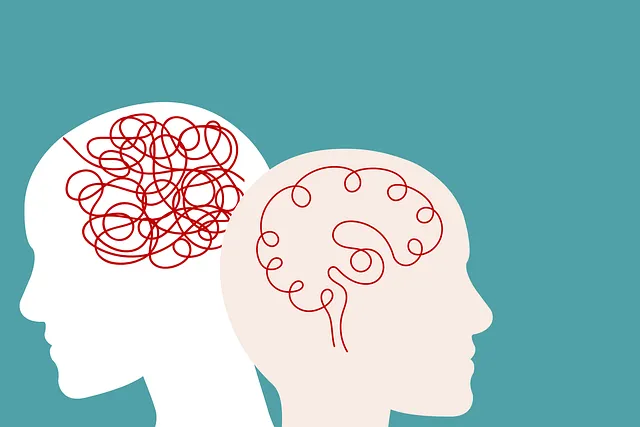Kaiser Permanente Boulder's comprehensive mental wellness programs prioritize employee well-being through tailored services like Crisis Intervention, Coping Skills Development, and Communication Strategies, evaluated using evidence-based methods incorporating participant feedback and data analytics. This commitment ensures impactful solutions aligned with modern work demands. When applying for Kaiser Permanente mental health jobs Boulder, candidates find a supportive environment focused on personal and professional growth. The program's evaluation involves quantitative and qualitative methods, stakeholder involvement, and continuous improvement based on KPIs like client satisfaction and engagement rates.
“Explore the comprehensive evaluation of mental wellness programs at Kaiser Permanente Boulder, a leading healthcare provider known for its commitment to mental health initiatives. This article delves into effective methods used to assess program success, focusing on stakeholder feedback and continuous improvement. Discover how Kaiser Permanente Boulder’s approach enhances mental health services, ensuring tailored support for patients in the vibrant community. With a keen eye on best practices, this study offers valuable insights relevant to healthcare professionals seeking to optimize mental wellness programs, particularly within Kaiser Permanente mental health jobs Boulder.”
- Understanding Mental Wellness Programs at Kaiser Permanente Boulder
- Key Evaluation Methods for Measuring Program Effectiveness
- Stakeholder Involvement and Feedback Collection
- Continuous Improvement: Implementing Changes Based on Evaluation Results
Understanding Mental Wellness Programs at Kaiser Permanente Boulder

Kaiser Permanente Boulder is renowned for its comprehensive mental wellness programs that prioritize employee well-being. The organization offers a range of services designed to support individuals in managing stress, anxiety, and other mental health challenges. These programs are tailored to meet diverse needs, encompassing various aspects such as Crisis Intervention Guidance, Coping Skills Development, and Communication Strategies. Through workshops, counseling sessions, and educational resources, Kaiser Permanente Boulder aims to foster a supportive environment where employees can thrive both personally and professionally.
The evaluation methods employed by the mental wellness programs at Kaiser Permanente Boulder are rigorous and evidence-based. These assessments periodically measure the effectiveness of interventions, ensuring that services remain aligned with current best practices. By integrating feedback from participants and utilizing data analytics, the program coordinators continuously refine their strategies to better address emerging mental health concerns among employees. This commitment to ongoing evaluation enables Kaiser Permanente Boulder to offer impactful solutions for improving mental wellness in its workforce, reflecting a deep understanding of the unique challenges faced by individuals in the fast-paced modern workplace.
Key Evaluation Methods for Measuring Program Effectiveness

When evaluating the effectiveness of mental wellness programs, several key methods stand out. One prominent approach involves pre- and post-program assessments using standardized questionnaires to gauge participants’ mental health status before and after the intervention. These tools often include validated scales measuring anxiety, depression, stress, and overall psychological well-being, providing a robust baseline for comparison. Additionally, qualitative feedback from participants through surveys or interviews offers valuable insights into their experiences and perceived benefits, enhancing quantitative data with real-life perspectives.
Another effective strategy is the comparison of program outcomes against established benchmarks or control groups. By examining changes in mental health metrics within a defined period after program implementation, researchers can attribute improvements to specific interventions. This method, employed by organizations like Kaiser Permanente in their mental health jobs Boulder initiatives, allows for the assessment of program impact on a large scale and aids in refining future programs based on measurable results. Moreover, evaluating the reach and engagement of mental wellness coaching programs and public awareness campaigns, such as Mindfulness Meditation initiatives, is crucial to understanding their potential to foster broad-based positive mental health outcomes.
Stakeholder Involvement and Feedback Collection

In evaluating mental wellness programs, stakeholder involvement and feedback collection are paramount. Engaging with a diverse range of stakeholders—from healthcare professionals at Kaiser Permanente mental health jobs Boulder to program participants and community members—provides multifaceted insights into the program’s impact and areas for improvement. This collaborative approach ensures that the evaluation process is inclusive and reflective of the program’s broader reach and influence.
Collecting feedback through various methods, including surveys, focus groups, and individual interviews, allows for a deep understanding of participants’ experiences with mental wellness initiatives. Incorporating perspectives from different demographics and backgrounds helps in tailoring programs to meet the unique needs of the community. By fostering Mental Health Awareness and encouraging practices like Mindfulness Meditation, these collaborative evaluations enable continuous improvement and optimization of mental wellness programs.
Continuous Improvement: Implementing Changes Based on Evaluation Results

At Kaiser Permanente mental health jobs Boulder, continuous improvement is a cornerstone of our program evaluation methods. We believe that ongoing assessment and adjustments are essential to enhancing the effectiveness of our services. When evaluating any mental wellness program, it’s crucial to analyze key performance indicators (KPIs) such as client satisfaction, treatment outcomes, and engagement rates. By regularly reviewing these metrics, we can identify areas where changes are needed. For instance, if stress management workshops show high attendance but low ratings on effectiveness, we might adjust the curriculum or delivery methods to better meet participants’ needs.
This iterative process involves actively implementing changes based on evaluation results. Incorporating feedback from clients and healthcare professionals ensures that our programs evolve to support individuals in their emotional healing processes. For example, integrating new Self-Awareness Exercises into group therapy sessions could foster deeper insights and improved coping mechanisms. Through these adaptations, we strive to create a dynamic and responsive environment that caters to the diverse needs of those seeking mental wellness at Kaiser Permanente Boulder.
Evaluating mental wellness programs, such as those offered at Kaiser Permanente Boulder, is crucial for improving patient care and ensuring the success of initiatives. By employing a range of methods, including stakeholder feedback and continuous improvement cycles, organizations like Kaiser Permanente can enhance their mental health services. For those interested in contributing to this field, exploring career opportunities in mental health jobs at Kaiser Permanente Boulder may offer a chance to make a meaningful impact on community well-being through evidence-based program evaluation and innovation.






